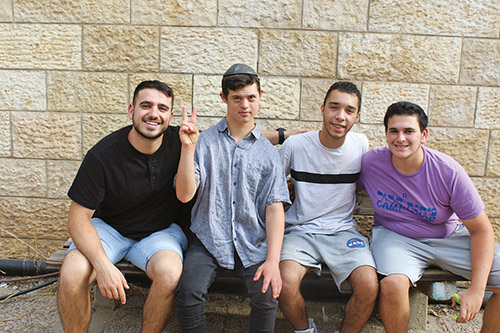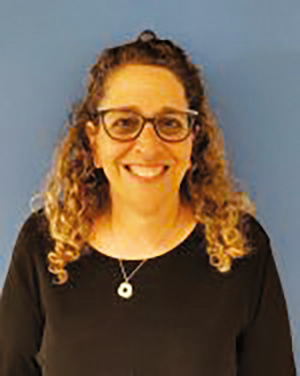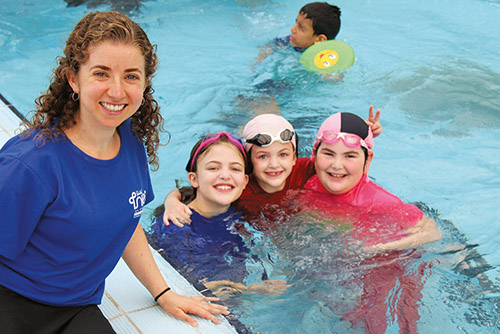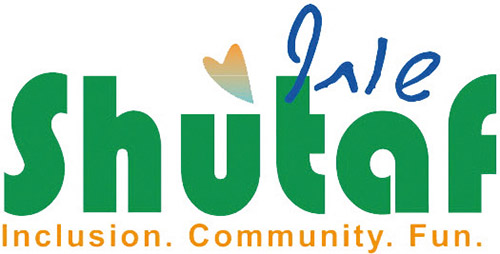
Every summer, deep in French Hill, Jerusalem, children’s laughter echoes in the mountains. This is the sound of over 100 children and their counselors enjoying the long days of summer. They revel in the sunshine, splash in the pool, learn how to care for small animals, and express themselves creatively through drama, arts and crafts, dance and music.
This privately funded camp is different from the hundreds of other day camps spread around Jerusalem, though. It is called Camp Shutaf, which means “inclusion.” It offers reverse inclusion, with 75% of its children having been diagnosed with different developmental, physical and learning disabilities, and 25% having no disability. The camp provides a unique opportunity, through its informal environment, for these children to interact, develop and grow into caring adults who see each other as equals.
Campers arrive every morning from Gush Etzion, Maaleh Adumim, Beit Shemesh and all over Jerusalem. Shutaf’s campers and staff run the spectrum of diversity—Jews, Arabs, religious, nonreligious, native Israelis, olim, and even tourists come together to create a memorable summer for all participants.

Shutaf was founded in 2007 by Beth Steinberg and Miriam Avraham, two moms looking for a summer program for their own children with special needs. The pair drew on their U.S. summer camp experience to develop a unique, inclusive summer camp. Ten campers registered for that initial summer program. By the next summer, with the addition of afterschool activities, Shutaf quadrupled in size.
There is a waiting list for the summer camp as it serves both the needs of the campers and those of their parents who do not really have any other solutions for their children in August. Staff is chosen and trained very carefully, and the ratio of staff to campers is two to one.
Shutaf runs throughout the year at their offices in Talpiot. “During the year, we have a Young Leadership program for ages 14-21,” said Marci Tirschwell, Shutaf’s program director. “They come after school, get a hot lunch, and hang out. Then once a week they cook their dinner and eat it together, and the other day, they engage in workshops where we discuss healthy sexuality, self-empowerment, drug and alcohol awareness, body image, and hobbies, among other topics.”
Recognizing that participants were aging out of the program right when they were about to enter adulthood, Shutaf expanded its offering.

“We started a social program for people aged 21 to 30 a few years ago. They come one evening a week and learn skills, in small groups, about money management, time management and how to navigate buses. Halfway through the year, they plan an outing together. This encourages them to think about everyone’s needs in the group. The outing the following week is fun and social,” Tirschwell added.
Today, there are over 300 participants ages 6-30 with disabilities and without. Demand is so high and the program is so popular that they added a Passover day camp during the school break for elementary-age children, and a three-day, two-night overnight adventure. They also offer a vocational program for teens and young adults, providing the population with skills that will serve them well after high school.
In its effort to spread its model of inclusion around the world, Shutaf has developed training materials for other camps looking to create an inclusive environment. The organization’s guides help counselors and caregivers learn to have open conversations about disabilities, create full programs for children, teenagers and young adults, and deal with challenging behaviors. Their resources include intake forms, lesson plans, and teaching units, as well as training tools and slides.
Learn more about Shutaf at https://shutafinclusionprograms.org/











